Image
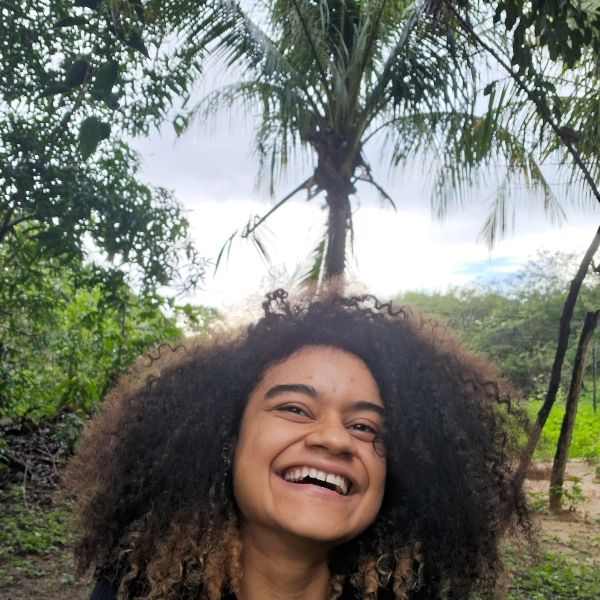
-
Gianna Torres Santos (she/her)
Gi Naturalize, Founder
- 30 Under 30
- 2025
Gianna is a youth activist who has used environmental education to build resilience among public school students and frontline communities since the age of ten.
Brazil, Age 18
How are you using education to build more sustainable and equitable communities? Tell us about your EE work and impact.
My work combines environmental education and artivism to reimagine how communities learn and act. Growing up in Brazil’s Northeast, I saw how environmental discussions often excluded local culture and youth voice. To change that, I began creating environmental education works that merge climate and environmental education with popular art forms, such as cordel poetry and visual storytelling inspired by ancestral knowledge.
As the founder of Gi Naturalize, an edu-communication initiative, my goal is to make environmental learning accessible and culturally relevant to those most affected by climate injustice: children, traditional communities, and low-income youth. I believe knowledge is the first step toward action, so I design intersectional and community-based educational practices that empower people to find solutions rooted in their own territories.
Through Gi Naturalize, I produce digital and in-person content: online videos that use humor, regional language, and storytelling to bring climate issues closer to daily life; and in public schools, interactive workshops where we connect science, traditional wisdom, and local experiences in a horizontal (where everyone learns and teaches) way. I also coordinate projects like Construindo Futuro, where young people from different Brazilian states develop local actions aligned with the Sustainable Development Goals.
Tell us about your journey to where you are today. What inspired you? What has your path been like?
My journey is deeply connected to my ancestry, territory, and community. I am the granddaughter of rural workers and climate migrants who crossed Brazil’s driest region during a historic drought and rebuilt their lives in a small neighborhood called Raiz, where I still live today. Surrounded by the native cerrado—a Brazilian savanna rich in biodiversity—I grew up seeing nature as part of who I am.
My love for nature became activism when I noticed the challenges around me: illegal fires, food insecurity, and lack of basic sanitation. I began studying environmental issues and sharing what I learned, even as a child. That desire to connect knowledge with action led me to found Gi Naturalize, a platform that blends art, humor, and environmental education to make learning accessible and culturally relevant.
Beyond Gi Naturalize, I collaborate with youth collectives like Engajamundo, which promotes inclusion in national and international decision-making spaces, and TMJt UNICEF, which advocates for children’s and adolescents’ rights. Recently, I became the first recipient in my state of the Earth Prize Scholars Award and was honored by my city’s Youth Secretariat for civic engagement.
How can people learn more about or support your work?
People can learn more about my environmental education work by following Gi Naturalize, my digital initiative that blends humor, art, and culture with environmental and climate information. Through short videos and creative posts, I connect everyday experiences from my community in Brazil’s Northeast to broader climate and sustainability topics, showing that environmental learning can be joyful, inclusive, and part of daily life.
Another powerful way to help is by sharing the importance of nature with your community, with your family, friends, and neighbors. Decolonize environmental education by listening to your local traditional communities, native or African descendent communities.
Finally, your unique skills and hobbies are powerful tools for change. No matter what you love—whether it's cooking, dancing, painting, or writing—you can use your platform to raise awareness and talk about environmental justice in a way that feels authentic to you.
A Little More About Me
What advice would you give to the next generation of leaders?
Listen to the ancestral wisdom of those who live in harmony with nature. Traditional and Indigenous peoples hold key lessons for facing the climate crisis.
Where do you feel most at peace and why?
In the native cerrado forest behind my house. I’ve known its trees since childhood; they’ve always felt like old friends, and being there lets me be my truest self.
What’s something that can always make you laugh?
Funny parrot or cat videos on the internet never fail to make me laugh.
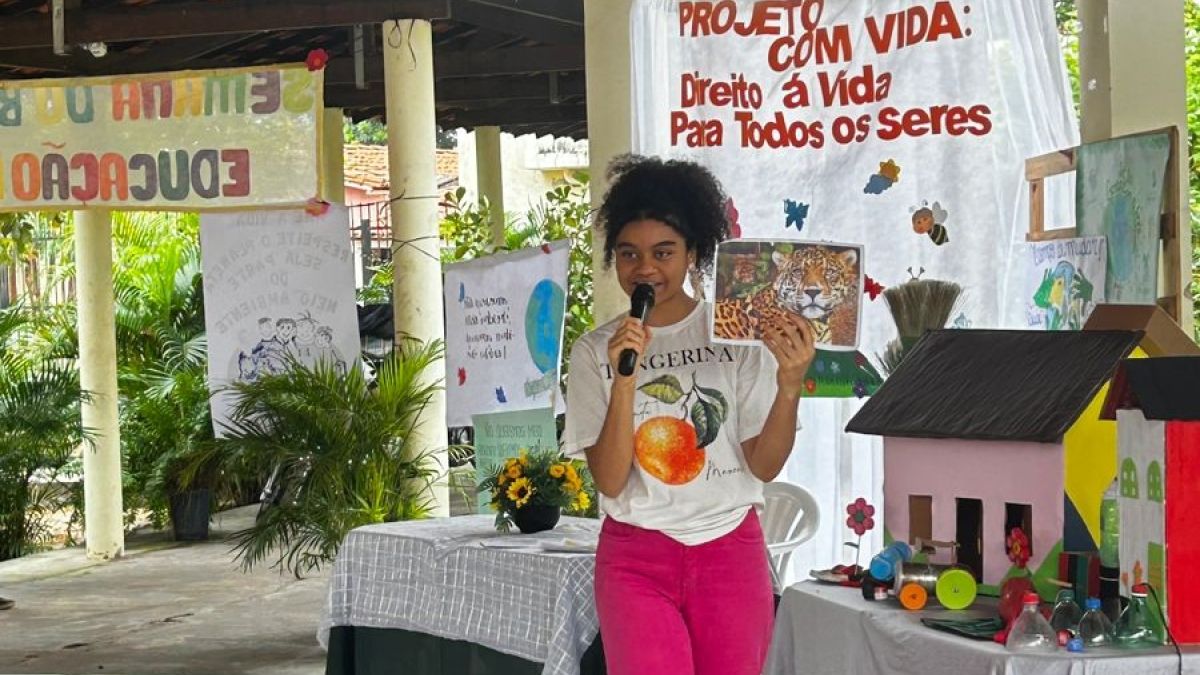
Playing charades with preschool students at the public school. Photo credit: Gianna Torres
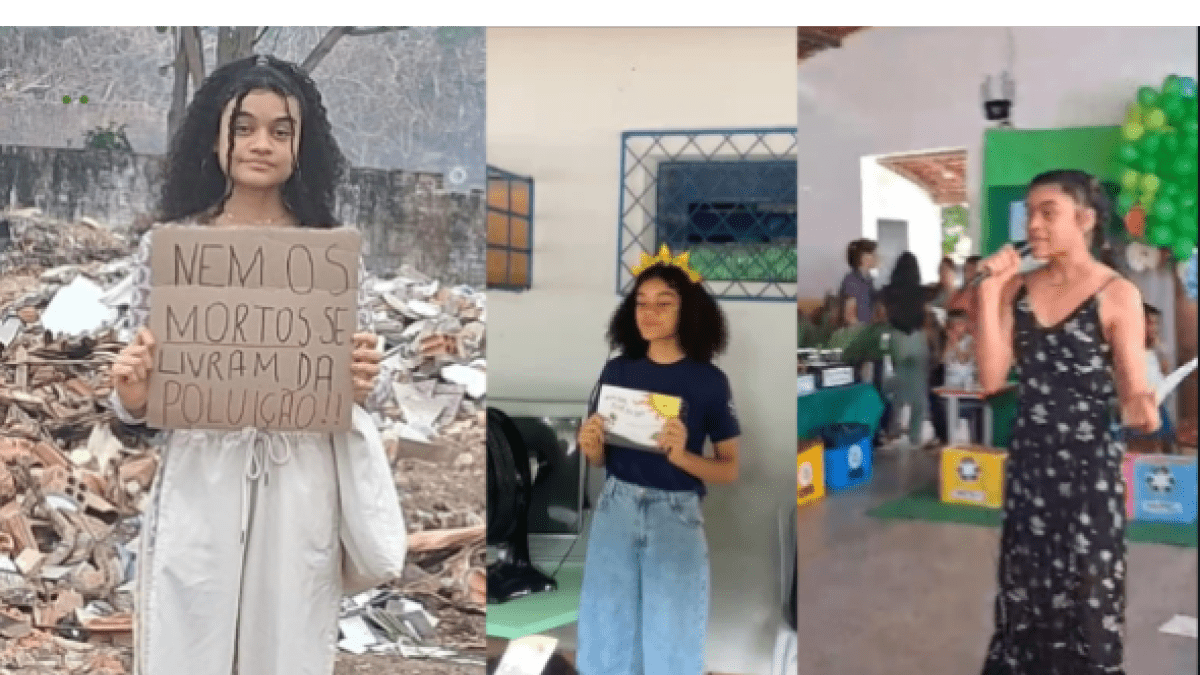
Artivism action in front of the city dump; storytelling at a local orphanage and lecture on sustainability at a public school. Photo credit: Gianna Torres
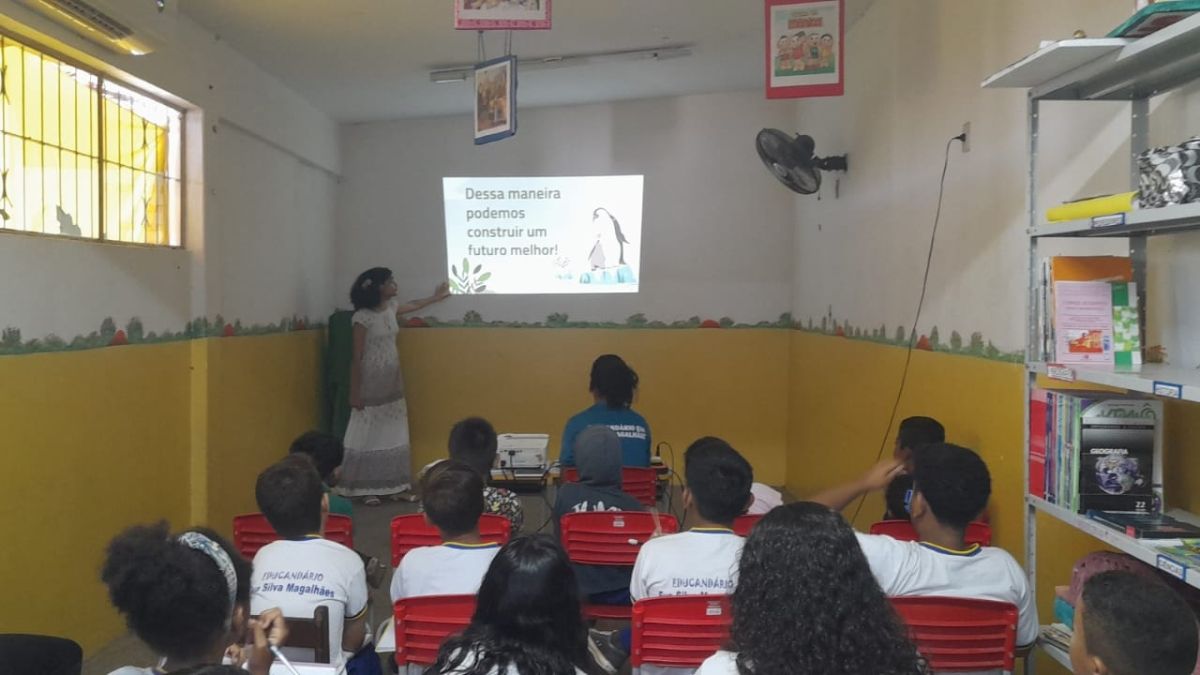
Explaining global warming to elementary school students. Photo credit: Gianna Torres
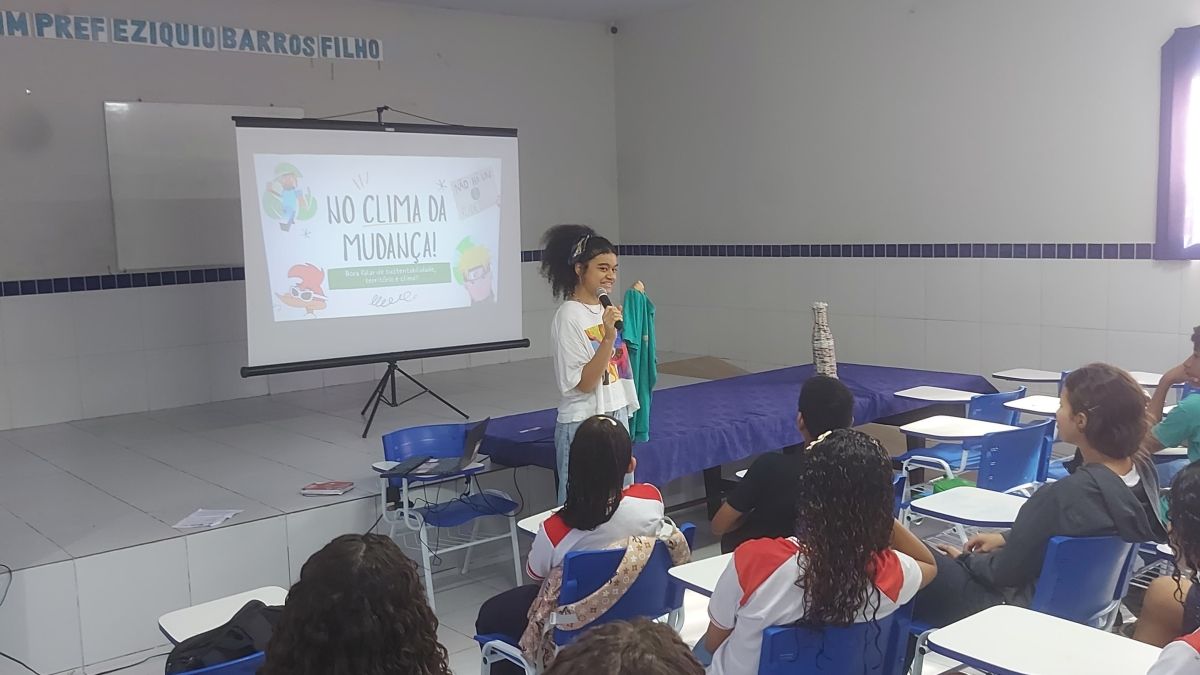
Talking about sustainable territories and local climate justice with high school students. Photo credit: Gianna Torres
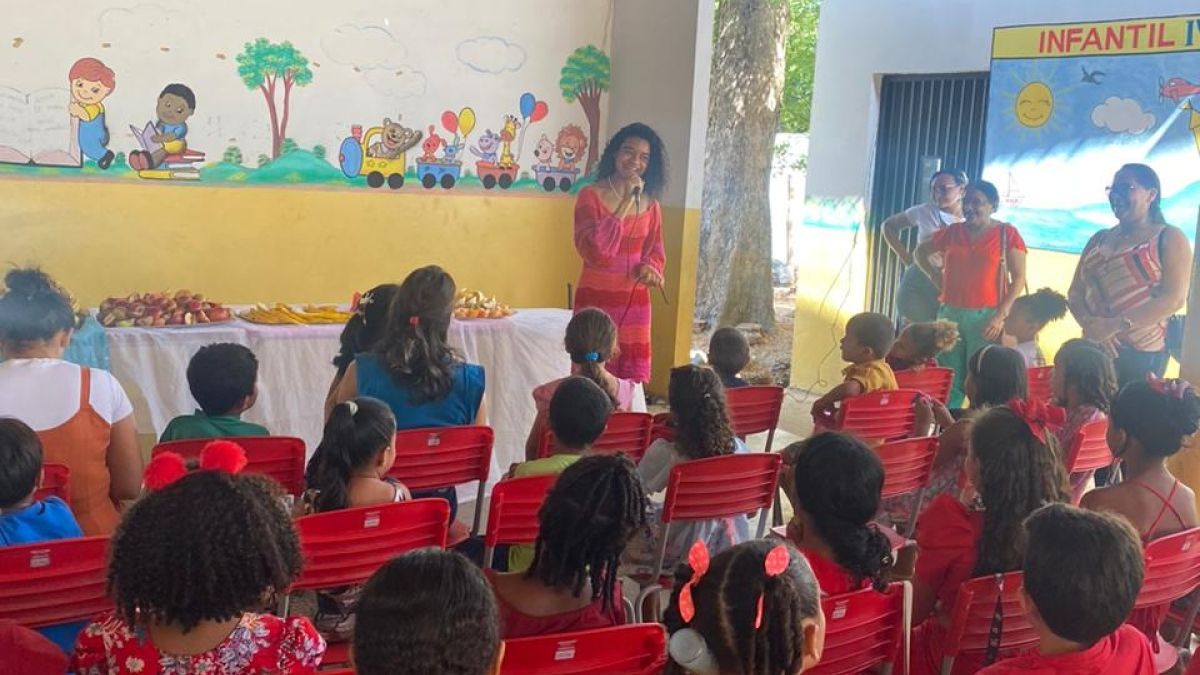
Talking about sustainable food and food justice with children from a local school. Photo credit: Gianna Torres